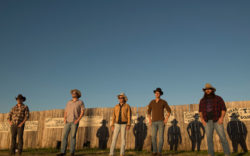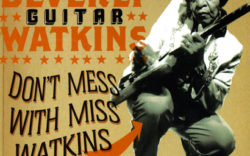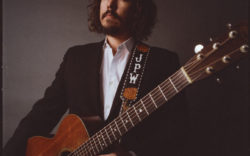Although his instrument of choice has since changed, 78-year-old Del McCoury still follows his childhood calling by chasing the masterful sounds of Earl Scruggs. McCoury learned to play guitar at age 9 from his brother Jerry. A few years later, Jerry brought home the Flatt & Scruggs record that would ultimately spawn a family-wide devotion to bluegrass. “When I heard Earl Scruggs play that three-finger roll, I quit playing guitar then and had to play banjo,” McCoury says.
That’s just one of many road-to-Damascus moments for talented youngsters destined for bluegrass stardom. In the decades to come, McCoury became a legend in his own right, positioning him to inspire his own sons and other prodigies to share his passion.
Around 1963, McCoury—a York, PA native—was performing in Baltimore’s then-blossoming bluegrass scene with Jack Cooke, a former member of Bill Monroe’s legendary Blue Grass Boys. When Monroe needed a guitar player for a few gigs in New York City, he swung through Baltimore to pick up Cooke. “Jack asked if [Monroe] had a banjo player,” McCoury says, “When he said no, Jack said, ‘Well, let’s just take Del with us.'”
A string of New York shows with Monroe landed McCoury a job with the Blue Grass Boys. There was one catch: Monroe wanted McCoury to sing and play guitar instead of the banjo.
Monroe also positioned McCoury for a chance encounter that was one simple request away from potentially altering the formation of the Grateful Dead. “When I was playing with Bill Monroe, we played the Ash Grove in Hollywood a couple of times,” McCoury says. “Jerry Garcia told me he was in the audience one of those times, and that he’d wanted to be a Blue Grass Boy. I told him, ‘Why didn’t you tell us?’ People say he was pretty bashful. He was a banjo player, and if he’d came with Bill, he would’ve progressed so much in a short amount of time.”
After his Blue Grass Boy days, McCoury put his newfound focus on guitar playing and singing to use as a bandleader. First came Del McCoury and the Dixie Pals in the late ’60s, with brother Jerry on bass. By the late 1980s, McCoury’s sons Ronnie and Rob had joined the group, later re-christened the Del McCoury Band.
Ronnie first took interest in performing bluegrass as a young teen after tagging along with his dad to some New York dates opening for Monroe. “Bill Monroe took a liking to Ronnie, who must’ve been about 13 or 14,” McCoury says. “It gave him the inkling to play mandolin just from that. Bill placed his mandolin in his lap and said, ‘Now you play me one!’ I had an old mandolin at home, so he learned to play it and never quit.” Younger sibling Rob followed dad’s childhood dream, proving to be a natural banjo picker as a preteen.
The McCourys followed a historic trend of future stars who took to playing bluegrass at a young age. Marty Stuart, Alison Krauss, Keith Whitley, Ricky Skaggs and, most recently, the Lovell sisters from Larkin Poe all toured and recorded as teenage musicians. For most of these teenagers, an established star served as a mentor and bandmate. McCoury’s sons had him, he had Monroe, Stuart had Lester Flatt, and so on.
“They realized that the future of their music lies with young people,” McCoury says. “Ralph Stanley’s that way, and Bill Monroe, and you name it. They learned when they were young, and to keep this tradition going, we’ve got to have kids in it.”
McCoury reckons that these young talents encountered life-altering musicianship along the way, just like he did when hearing Flatt & Scruggs for the first time.
“All kids like a challenge, for one thing. Another thing is it must just strike their ears,” he says. “It’s just like me the first time I’d heard Earl Scruggs. Of course, I heard Elvis and Jerry Lee Lewis and all of those guys, and they were great. They could really sing and play. But I had already heard Earl Scruggs, and I was ruined for life when I heard that banjo.”
Like what you just read? Support Flagpole by making a donation today. Every dollar you give helps fund our ongoing mission to provide Athens with quality, independent journalism.










